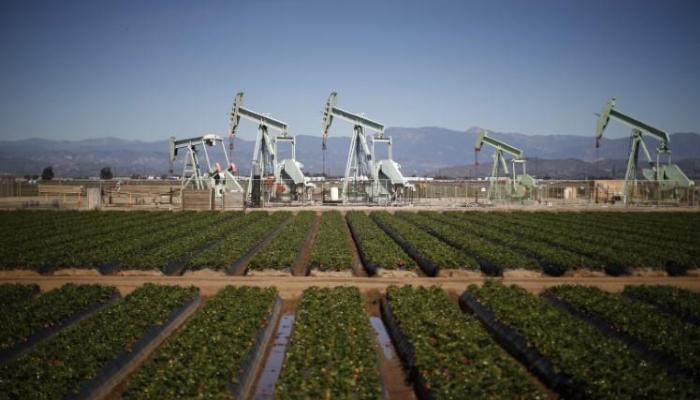US crude tops two-year high as Keystone outage hits supply

NEW YORK: US oil costs hit their most elevated amounts in over two years on Friday after the proceeded with shutdown of a pipeline running from Canada to the United States was relied upon to decrease supply into a noteworthy storeroom.
US West Texas Intermediate unrefined prospects (WTI) settled up 93 pennies (or 1.6 percent) at $58.95 a barrel.
Exchanging volumes were thin on Friday because of the US Thanksgiving occasion.
Benchmark Brent unrefined rose 31 pennies (or 0.49 percent) to settle at $63.86 a barrel.
TransCanada Corp's 590,000 barrel-per-day Keystone pipeline, connecting Alberta's oil sands to US refineries, close on November 16 after a spill was found in South Dakota.
It isn't clear when the pipeline would come back to operation, yet it conveys a huge part of unrefined into Cushing, Oklahoma — the conveyance point for WTI fates — so its shutdown implies less barrels going into capacity.
The spread between the incite and second month WTI prospects — a pointer of supply-request adjusts at Cushing — likewise exchanged up to 10 pennies in backwardation where provoke barrels are more costly.
"We're hoping to keep seeing draws out of Cushing, which transformed the WTI showcase into backwardation," Tariq Zahir of Tyche Capital Advisors stated, alluding to a market structure where incite costs are higher than those later on.
"Be that as it may, these increases could go directly down into the tubs seven days from today if Russia says they would prefer not to oblige any OPEC bargain. Or, on the other hand, in the event that we get grumblings from Iraq or Iran," he included.
Markets have likewise fixed internationally because of yield cuts since January by the Organization of the Petroleum Exporting Countries (OPEC), Russia, and a few different makers.
OPEC meets on November 30 and is required to stretch out the agreement to check supplies past its expiry in March, in spite of the fact that Russia has sent blended flags about its help for an augmentation.
"With the lion's share of OPEC individuals underwriting an expansion, Russian help is the key hazard," Jon Rigby — the head of oil explore at UBS — wrote in a note.
President Vladimir Putin demonstrated in October that Russia upheld stretching out the arrangement to the finish of 2018, yet remarks by authorities and in the Russian media have made vulnerability from that point forward, he said.
J.P. Morgan said a choice on an augmentation could be postponed until one year from now if Brent remained above $60.
In any case, rising US oil generation has controlled unrefined value picks up, as it fills a portion of the hole left by OPEC and its partners.
US yield has hopped by 15 percent since mid-2016 to a record 9.66 million BPD, on account of shale penetrating.

No comments